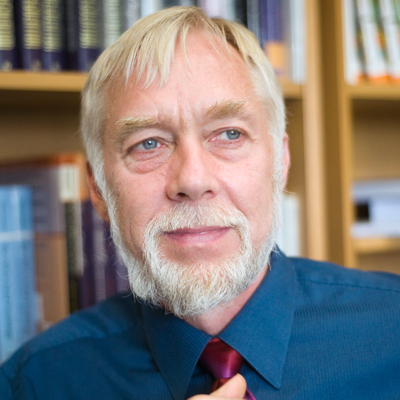Understanding human desires and nature through rigorous research
Research now confirms that increased self-control, more than self-esteem, leads to greater success in school and work, improved relationships, more happiness, fewer personal problems, more money, and longer life. In addition to self-control, there are other qualities that can greatly help enrich the quality of an individual’s life. Dr. Roy Baumeister, Francis Eppes Eminent Scholar and Professor of Psychology at Florida State University, studies the basic questions of self-control, free will, the need to belong, future-mindedness, and addiction, and the impact these traits can have on individuals’ decision-making processes in not only their own lives but also in the broader context of society. By exploring how we think about ourselves and why we feel and act the way we do, Dr. Baumeister provides deep insight into human morality and success.
One of the world’s most influential social psychologists, Dr. Baumeister has published well over 500 scientific articles and 30 books, and more than 140 of his publications have been cited over a hundred times (as opposed to the usual one to zero). Moreover, a book covering his research on self-control became a New York Times bestseller in 2011, which reflects the broad public interest in this important work. With a well-organized lab and prominent collaborators both nationwide and worldwide, Dr. Baumeister often moves beyond psychology and works with fields like marketing, business, philosophy, and economics. For example, one recent line of research reveals that undermining people’s belief in free will makes them prone to cheat, steal, attack others, refuse to help others, stop thinking for themselves, and perform badly at work. Such empirical, scientific data explaining human behavior will profoundly help people to be better decision makers and exercisers of self-control.
Scientific psychology is less well known than clinical psychology. Baumeister uses laboratory experiments and other statistical methods to explore basic truths about normal human behavior.
Dr. Baumeister’s laboratory has multiple lines of research. While some of them overlap, to varying degrees, the main current themes include:
- Willpower and Self-control: A program of laboratory experiments for the past two decades illuminates how people use, conserve, waste, and recover their willpower, and how their self-control fluctuates depending on circumstances.
- Scientific Theory of Free Will: Part of the human brain and mind involves the “executive function,” which makes decisions, seeks control over self and world, and initiates action. Some people dislike the term “free will” because they think it invokes scientifically dubious notions, such as exemption from causality, or having a soul that guides action. Instead, Dr. Baumeister aims to understand free will squarely in the context of evolution, culture, rational thinking, morality, brain processes, and psychological data.
- The Need to Belong: Dr. Baumeister’s most frequently cited paper, which has been listed in the bibliography sections of scientific articles over nine thousand times (anything over a hundred is usually considered excellent), was called “The Need to Belong,” reviewing a massive amount of evidence that the desire to connect with other people is a basic and pervasively influential driver of human thought, action, emotion, and health. Stimulated by this original paper, Dr. Baumeister and his team are conducting a long series of lab studies examining the effects of thwarting that need, such as when people are rejected by others. Findings are strong and often surprising, and implications reverberate to how we understand emotion, loneliness, risk-taking, close relationships, and many other exciting questions.
- Thinking Ahead: A recent line of work has explored human thoughts, especially as to how they roam in time. Most other animals live in the immediate present, unable to mentally replay the past or envision possible futures, but human thought can leap forward or backward by hours, decades, and even centuries. Dr. Baumeister and his team are collecting data about planning, future-mindedness, optimism, and other key aspects of how the human mind constructs a map of the future and then uses that map. It affects investment decisions, trust, moral judgment of other people, coping, happiness, and much more.
- Addiction: Recently, Dr. Baumeister began to intensively read the research literature on addiction spanning alcohol, drugs, and other general patterns, because it is relevant to all the topics listed above. Addicts struggle with self-control, and low self-control or depleted willpower undermines efforts to quit. Whether addiction destroys free will is a profound question, with good arguments on both sides. Addiction damages relationships but often people become addicted or quit in step with their loved ones and friends. In addition, addicts are exceptionally unwilling or unable to think about the future, compared to others. The line of work Dr. Baumeister wants to develop on this topic could shed light on important scientific theories – and could potentially help many people who struggle with addiction.
Bio
Dr. Roy Baumeister is a social psychologist who explores how we think about the self, and why we feel and act the way we do. He is especially known for his work on the subjects of willpower, self-control, and self-esteem, and how they relate to human morality and success.
Dr. Baumeister first planned on being a math major, because he liked solving problems. And then he tried philosophy, because it dealt with profound problems and grand ideas. Psychology emerged as a late compromise, where he could use statistical data to address some of those profound issues and problems. Psychology also serves what his mentor once called one’s “basic curiosity about people.” In short, Dr. Baumeister does research in psychology as a way of coming to understand people, social life, and the human condition in general.
Dr. Baumeister’s research is not based on a strong allegiance to certain ideas, such as the political or religious views that motivate some other researchers. Instead, he tries to listen to the data and follow where they lead. He makes a virtue of revising his views and theories as new facts become available, because he wants to end up knowing the truth, whether he likes it or not.
Another important part of his research process is training young researchers. Almost 40 people have completed a social psychology Ph.D. or postdoctoral fellowship with Dr. Baumeister, and to his delight, all of them so far have gone on to academic jobs, in some cases winning awards for their research. Dr. Baumeister tries to give them freedom to pursue their own interests while they work in his lab, though this means that his research gets pulled in several different directions.
Outside of research, Dr. Baumeister is an amateur pianist who also enjoys composing music and skiing.
For more information, visit http://www.roybaumeister.com/
In the News
Scientific American
Australian Broadcasting Corporation
BPS Research Digest
Publications
Videos
Awards
Scientific Impact Award, 2015
Society for Experimental Social Psychology (highest honor for single article based on cumulative scientific influence; this was for “The Need to Belong”)
Alexander von Humboldt Research Award for lifetime contributions to scientific research, 2015
(The highest honor given by the Humboldt Society)
Inducted into American Academy of Arts and Sciences, 2015
William James Fellow Award for lifetime contributions to psychological science, 2013
(The highest honor granted by the Association for Psychological Science)
Distinguished Lifetime Career Contribution Award, 2012
(highest honor given by International Society for Self and Identity)


